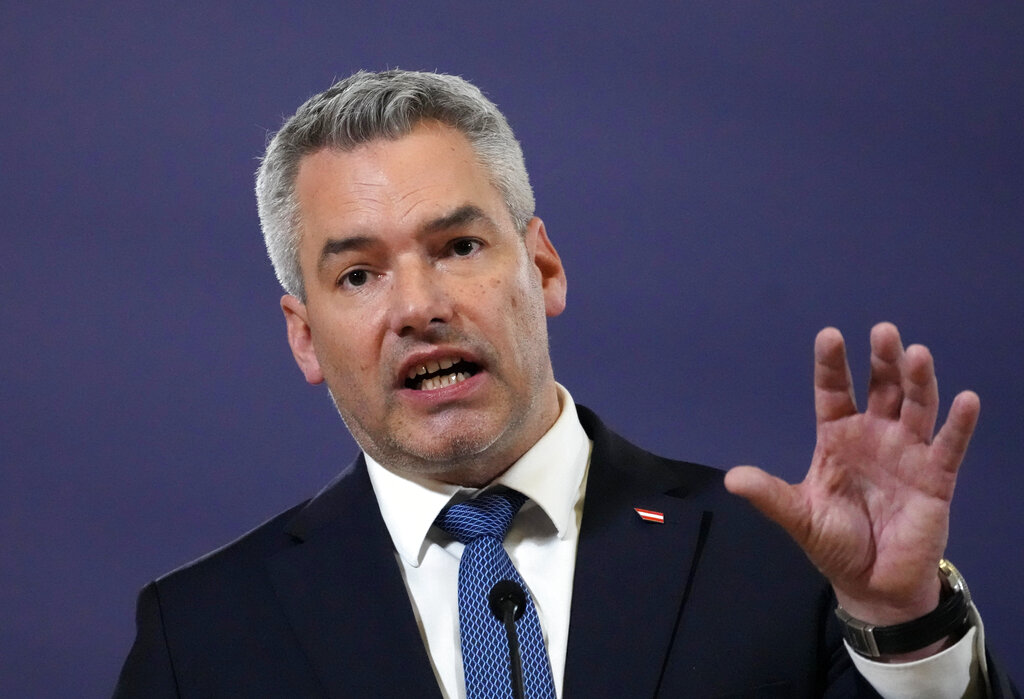The record-breaking surge in illegal immigration to Austria is having spillover effects that are effectively crushing the hopes of EU member states Bulgaria and Romania of becoming part of the Union’s border-free Schengen area.
During a visit to neighboring Croatia, Austrian Chancellor Karl Nehammer alluded to Bulgaria and Romania’s inability to curtail illegal immigration and register migrants crossing the border as the primary reason for Austria’s decision.
The chancellor said that 100,000 illegal immigrants had applied for asylum in Austria this year, 75,000 of whom were not registered in any EU country. He said Croatia had met the conditions because the authorities there could pinpoint which countries the migrants came from, while Romania and Bulgaria had problems with border protection.
“When we talk about the enlargement of the Schengen area, and at the same time criticize the European Commission’s plans to do so, we have to take into account the problems Austria is facing,” he said at a joint press conference after meeting Croatian Prime Minister Andrej Plenković.
[pp id=50897]
The chancellor stressed that Austria must take into account the route by which most migrants arrive in his country, and as a result, Vienna will vote differently on the Schengen accession of each candidate country.
Nehammer has not only been critical of neighboring countries, but also said earlier this month that the “EU’s migration policy has failed.” The situation since then has not improved either.
Recently, Hungary, Austria, and Serbia have agreed to establish a joint border defense force to deal with a spiraling migrant crisis that has seen all three countries overrun and struggling to prevent more border violations.
Nehammer said “Schengen makes sense if the EU’s external borders are so well protected that there are no problems inside the zone.” Plenković said that Croatia, as a future member of the Schengen area, “is part of the solution to the problem, but is not a problem itself,” without naming the other two Schengen hopefuls, according to Hungarian news outlet Mandiner.
[pp id=44559]
He added that Zagreb is aware of the concerns and difficulties that Vienna is facing in the area of illegal migration and is willing to provide further information to all EU member states on what Croatia has done to protect the EU’s external borders.
A wave of rape cases involving migrants, growing tent cities to house migrants, and a record number of asylum applications, means Nehammer is under extreme pressure to fix the migration problem his country is facing. The rival Freedom Party of Austria (FPÖ) has been traditionally known for its far tougher stance on immigration, which has resulted in a polling surge, making it tied for the most popular party in the country. The FPÖ has been criticizing Nehammer’s conservative ÖVP as ineffective against mass migration, and given the state of the country’s border, Austrians are flocking to the FPÖ.
Nehammer may now be trying to find other outlets to pressure the EU to take action. EU interior ministers will meet in Brussels on Dec. 8 to decide on the Schengen membership of Croatia, Romania, and Bulgaria. The decision can only be taken by unanimity, but the accession of each country will be voted on separately. The European Commission and the European Parliament have previously backed Croatia’s accession.





